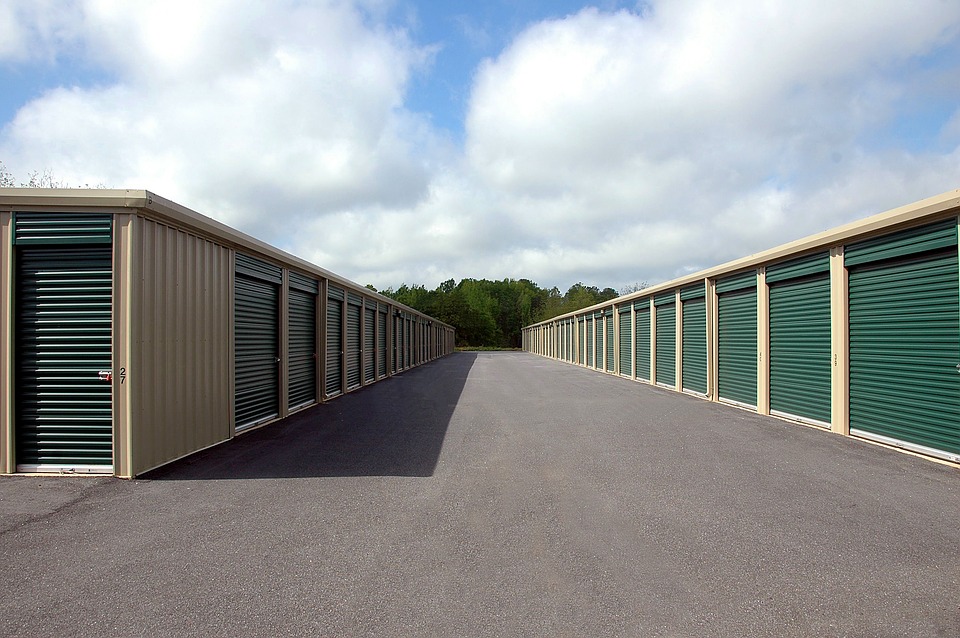A Beginners Guide To Renting A Storage Unit

Self-storage units are secure and private units that allow individuals and business to keep their belongings. Naturally, there are numerous reasons why someone may want to rent out a storage unit. Relocation, downsizing, or decluttering their living space, or storing seasonal equipment are a few. But it may seem a bit daunting to rent one if you are a first-timer. Worry not. We have compiled a complete guide to help you through this process. Keep reading.
Basic storage unit service options
There are two types of storage unit services available. Choose one that meets your needs.
-
Full-service storage
If you want to be completely hassle-free, these are the best option for you. In addition to the regular features you would expect, full-service storage units also offer to pick up your belongings right from your home. You don’t need to pack and take stuff yourself.
Additionally, you can also have them bring everything or some particular things back to you whenever you need them. You don’t have to worry about losing your valuables because full-service storage units meticulously document your belongings and provide adequate insurance.
-
Self-storage units
Self-storage units are secure and affordable, which makes them the go-to choice for a lot of people. You can rent a small or large storage unit according to your needs. As the name suggests, self-storage units are entirely private, and the renter is solely responsible for their belongings. This includes taking them to the facility and retrieving them as well. However, self-storage facilities usually do not document inventory. People who rent these storage units have to keep track of everything themselves. Nonetheless, basic security features are guaranteed.
Types of storage units
Moving forward, let us dwell on the types of storage units you can rent out. There are variations based on items you can store in them and some value-added features.
-
Standard storage units/Accessible units
These are common storage spaces with no unique feature. All you have to do is pick a size that suits your needs and how many things you intend to store.
-
Storage units with climate control
Climate-controlled facilities have systems that regulate temperature, air quality, and humidity. These units are perfect for storing climate-sensitive items. Things such as documents, books, photographs, furniture, and anything else sensitive to extreme climatic conditions like cold, heat, and humidity are best stored in these units. It helps to keep them safe from mold, dust, and permanent damage. In fact, climate-controlled facilities are generally better than others because they are well-kept and undergo regular maintainence.
-
Vehicle storage units
These are larger than regular storage units and can be covered or uncovered, depending upon the vehicle’s size and preference. You can store cars, recreational vehicles, and even boats.
-
Drive-up storage units
These are like a self-storage garage. They have the advantage of loading and unloading directly from your vehicle. The immediate drive-up access makes them popular if you are likely to make more drop-off and pick-up trips. But the disadvantage is that these units are generally not climate-controlled.
With all that information, now comes the tricky part. How do you decide what type of storage unit do you need? The answer is simple; one that suits your needs. Here are a few considerations that should help you make a decision.
What to look for in a storage unit?
When you are considering options to rent out a storage unit, keep the following in mind:
- Is the facility accessible 24 hours a day, seven days a week, or not?
- Is the building in good shape?
- Are the doors and windows in good condition?
- Do they have pest control and essential cleaning services available?
- Are there surveillance cameras monitoring the units at all times?
- Do the units have simple locks or high tech keypad or fingerprint locks?
- What size variety do they offer?
- Do they offer any discount if you want to lease the unit for a long time?
- Do they offer monthly leasing options?
- What do the customers have to say about their services and the storage unit facility on the internet?
Get insurance
If you intend to rent a storage unit for a long time or even a couple of weeks, get insurance for your belongings. Getting insurance will put you at ease. You can also easily replace the damaged items, stolen, or broken in the storage units free of charge. Many storage unit facilities offer insurance options to their renters. Still, consider consulting your insurance agent about the credibility of the policy. Get an external policy for extra protection if necessary.
Conclusion
It is best to do thorough research and make a carefully educated decision about which storage unit to rent out. After all, your valuables are at stake. Once booked, pack your belongings carefully and keep images and an inventory of everything that goes into the unit. No matter how secure, at the end of the day, you are responsible for the safety of your belongings.